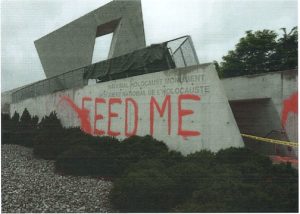An Ontario Divisional Court has dismissed a claim by three private schools, including a Toronto yeshiva, that federal COVID safety funds for public education should have been similarly distributed to independent schools.
In a case heard on an emergency basis in August 2021, the schools—including the Toronto Cheder, a yeshiva in North York—sought judicial review of Ontario’s decision not to distribute a share of the $763 million that the province received from Ottawa.
The money was part of the Safe Return to Class Fund in 2020. It was allocated to the province’s public and Catholic school boards for improved ventilation, sanitation and other safety measures.
The decision, released Oct. 5, 2022, dismissed the request, with the reiteration that Ontario has no obligation to support independent schools.
“While it may have been within Ontario’s discretion to allocate some of the funds to private schools, the Prime Minister was explicit that the provinces and territories had ‘the flexibility to spend the fund in accordance with their education sector’s priorities,’” the three-judge panel wrote.
Lawyers for the independent schools argued that Ontario’s share of the federal funds was based on the total number of school-aged children in the province, not solely those enrolled in public and Catholic schools. (A total of about 1,500 independent schools—which had an approximate enrolment of 150,000 students— were not eligible for the funds.)
However, even though that was how Ottawa calculated the level of funding, it did not mean that private schools were necessarily required to receive any money for COVID safety, the judges wrote.
“Governments, at all levels, were struggling to address an apprehended public health crisis. Use of a particular data set by Canada in this context is not a basis on which to imply legal restrictions on Ontario’s exercise of its own sovereignty over education and health matters within the province,” the decision states.
At the Aug. 9 virtual hearing, lawyers for the Ontario government argued that independent schools, even not-for-profit ones, are businesses. The schools were able to access other federal programs, such as wage and rent subsidies, which were not available to public schools.
In an affidavit submitted to the court, Rabbi Shmuel Horowitz, executive director of the Toronto Cheder, said the school spent $44,951 on COVID-related expenses.
David Elmaleh, the lawyer who represented the Toronto Cheder—as well as Metropolitan Preparatory Academy in Toronto and Woodland Christian High School in Kitchener, Ont.—said the schools were examining the decision.
“After nearly 14 months, the Reasons for Judgement regarding the schools’ judicial review application was delivered, ironically on Yom Kippur. The schools are reviewing the decision carefully and considering how they wish to proceed.”
Grassroots for Affordable Jewish Education, an advocacy group working to secure government funding for Jewish day schools, was outraged by the decision.
“The remarkable indifference by Queen’s Park through the COVID health crisis to the then uncharted, worrisome health risks to children in independent schools (or as the government prefers to call them, private schools) was utterly unconscionable,” the group wrote in its weekly newsletter.
“Absent legal obligation, was there no obligation of conscience, of the heart, of sheer decency and concern for the health, safety and well-being of all Ontario’s children? The callousness of the Ministry of Education was ever more egregious in light of the fact that the monies for the special fund were drawn entirely from the federal government and represented no call upon the budgeted provincial treasury.”
B’nai Brith Canada, the sole intervener in the case, had argued that the province was obligated to consider the needs of all schools, particularly if some schools had special concerns, such as being located in a hotspot where COVID cases were higher than average.
“We are disappointed with the decision of the court in this matter, and are in the process of analyzing the decision and discussing next steps with our legal counsel,” CEO Michael Mostyn said in a statement.







